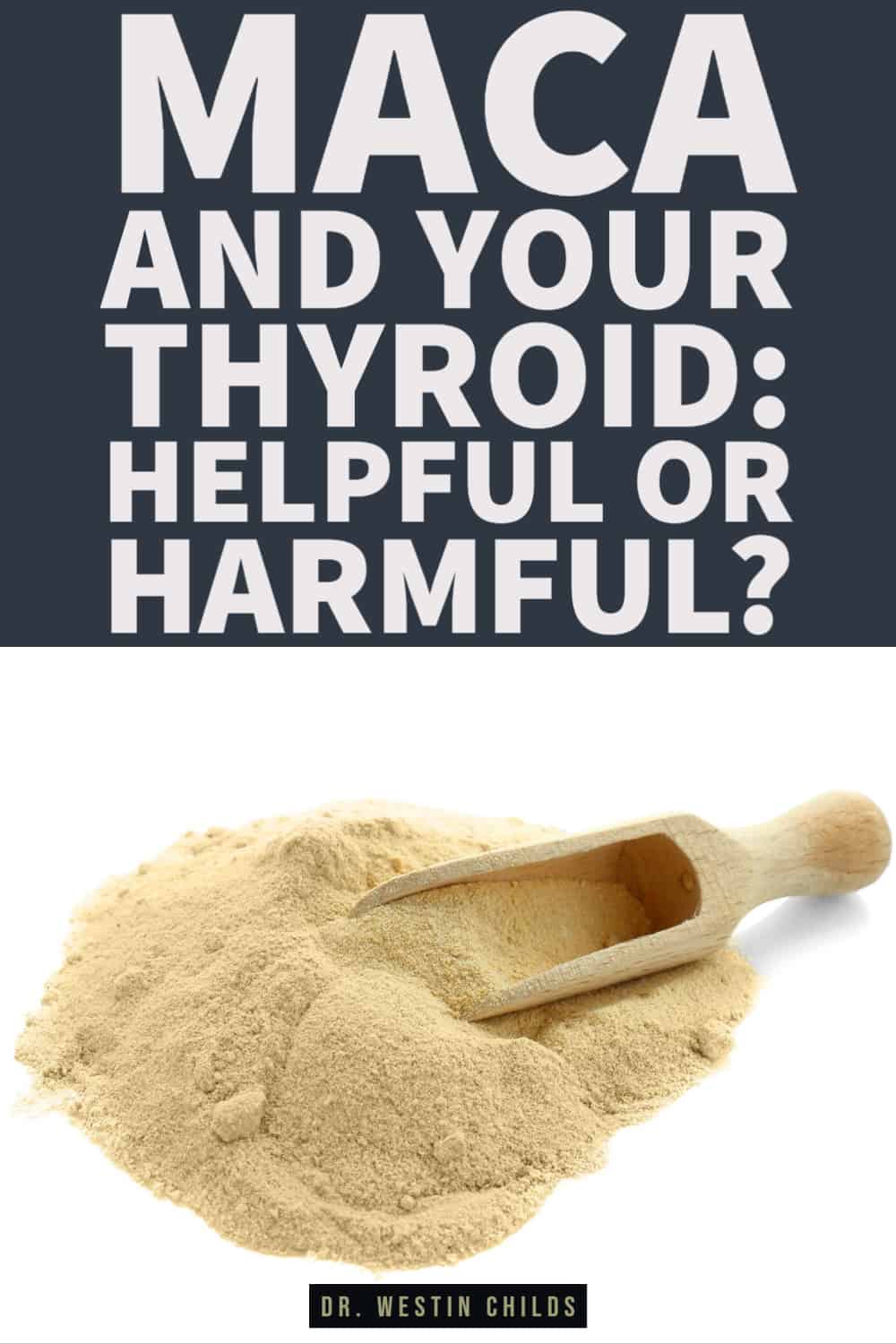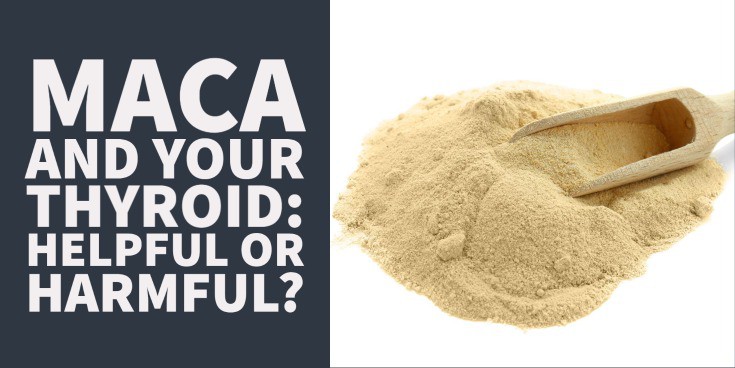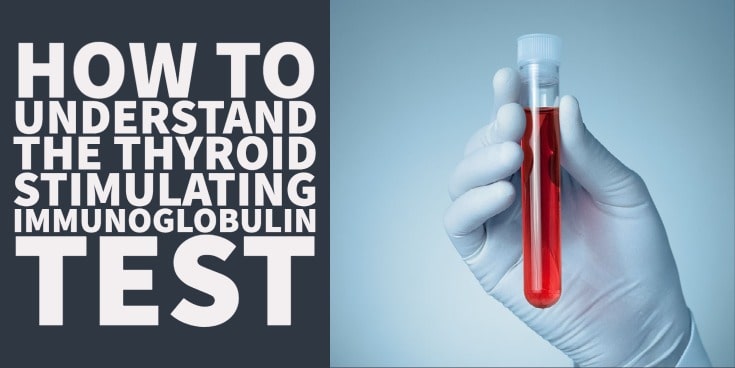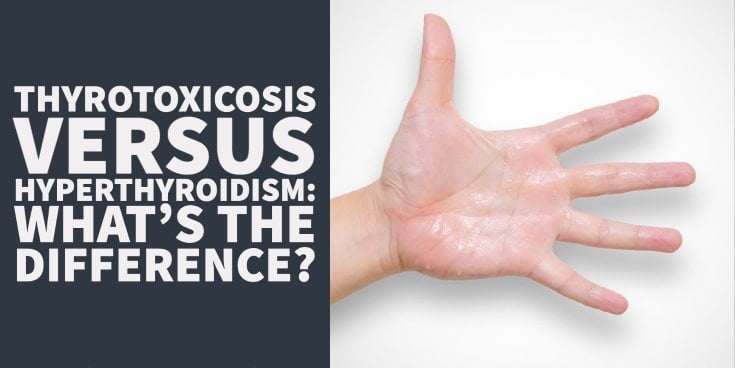Tired of relying 100% on your thyroid medication as a support system for your thyroid?
If so, then it may be time to try some other more natural options.
One such option is that of nutrient-dense foods.
Specific foods contain high numbers of ingredients and botanicals that can not only impact your thyroid but other systems and hormones in your body as well.
There are lots of foods that can do this but the one I want to focus on today is maca root.
Maca is a plant that comes from Peru and has been used to treat a variety of ailments and enhance vitality for centuries.
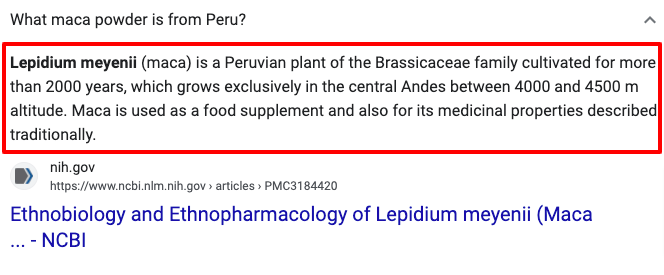
Thanks to modern technology we can now easily import maca root powder all around the world to take advantage of these benefits that were previously only known to those who lived near where it was grown.
It’s technically in the same family as cruciferous vegetables (such as broccoli, cabbage, and kale) which is why there is some controversy about it being used in thyroid patients (more on this below).
Today I want to talk about the benefits of maca root and why you should consider using it if you have a thyroid problem.
We’ll also discuss some of the more controversial points surrounding maca root in thyroid patients, why it’s not harmful (even though some people suggest it is), how to dose it correctly, and what sort of benefits you can expect to experience when using it, and much more.
Let’s jump in…
Maca Root Powder And Your Thyroid: Why It’s Great
Maca powder and thyroid patients are a match made in heaven.
Here’s why:
Many of the symptoms that thyroid patients face on a daily basis happen to the benefits that maca provides.
Documented benefits of maca root powder include:
- Increase in libido, sex drive (1), and fertility
- Energy-enhancing effects (2)
- Improved bone health (3)
- Better brain function (4)
- Cortisol balancing effects (5)
- Enhanced stress resilience
- Better all-around vitality and sense of well-being
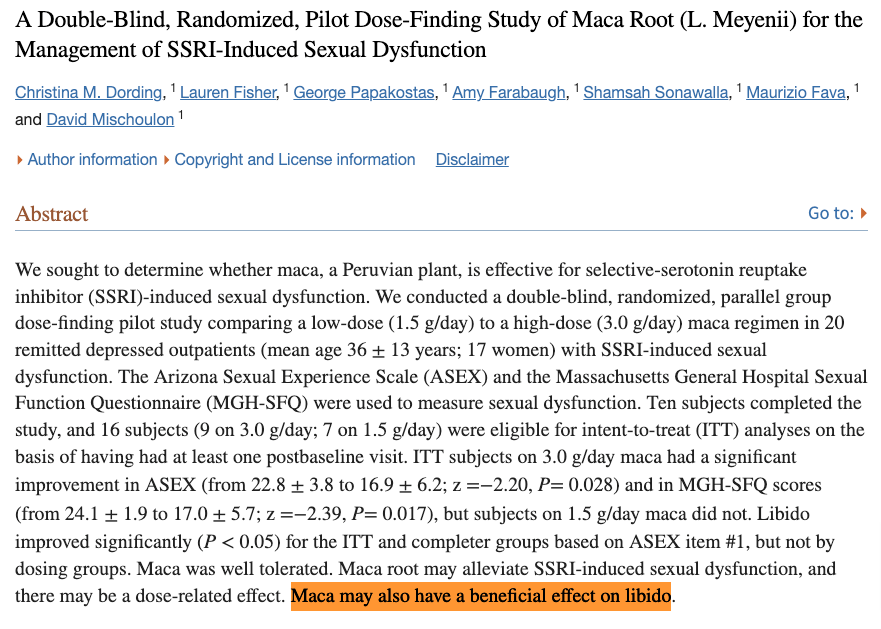
As a thyroid patient, many of these benefits probably sound appealing because they may be issues you are dealing with as you read this.
Fatigue, decreased sex drive, bone loss, brain fog, adrenal fatigue, and so on, all commonly go hand in hand with thyroid disease.
Using maca as a supplement provides an additional way to manage these symptoms and can be safely combined with thyroid medication.
Unfortunately, it’s not quite as easy as taking maca, reaping all of the benefits, and calling it a day.
There are some other additional ingredients found inside this plant that may cause issues for thyroid patients.
What About Goitrogens?
I mentioned that there is some controversy about using maca root powder if you have a thyroid problem and this is why.
If you’ve spent time around my blog then you will be familiar with the term goitrogen.
Goitrogen is a term used to describe a compound or substance which blocks the uptake of iodine into the thyroid gland.
The compounds and substances which do this can be found in all sorts of things ranging from chemicals (6) to foods (7) to supplements and even medications.
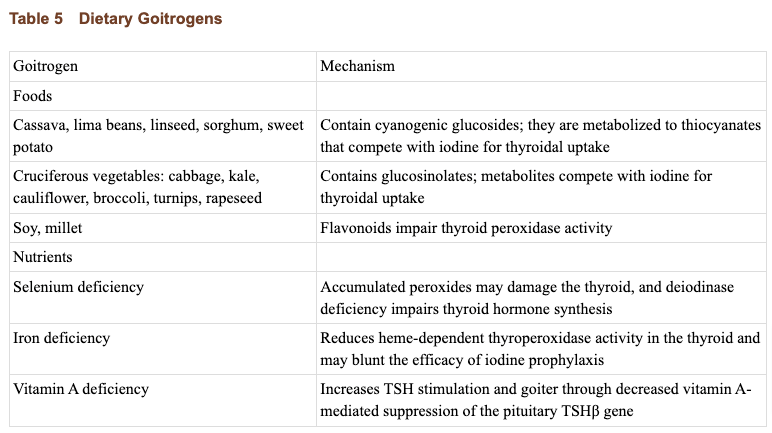
Lots of things have the potential to act as a goitrogen.
You can imagine that as a thyroid patient, you may want to avoid goitrogenic compounds, right?
After all, getting iodine into your thyroid gland is pretty important if you want to produce thyroid hormone.
Well, yes, and no.
In general, it’s a good idea to avoid goitrogenic compounds if possible but it’s not as straightforward as you might think.
Remember when I mentioned that maca root is in the same family as cruciferous vegetables?
Well, this is important because even though cruciferous vegetables (8) can have a goitrogenic effect on your thyroid gland doesn’t mean their downsides outweigh their benefits.
In most cases, and for most thyroid patients, the benefits you get from eating things like cabbage, kale, and broccoli outweigh any small potential problem that the goitrogens found in these vegetables may cause to your thyroid gland.

This same principle holds true for maca root powder but even if this isn’t enough for you, there are still several other reasons not to be concerned.
Let’s elaborate on this idea.
Imagine you are taking maca root powder because you want to balance your sex hormones, enhance your libido, and increase your energy levels.
Now let’s say that taking maca is helping you experience all of these positive side effects.
Do you think that it makes sense to stop taking it just because you are worried that it MIGHT cause an issue with your thyroid?
Not really.
Why trade something that is working right now for some problem that may never materialize?
But that’s not the whole story.
Even though maca root may contain goitrogens doesn’t mean there aren’t ways to reduce the goitrogenic compounds found inside of it.
It turns out that the standard processing of maca root into a powder reduces most goitrogens!
If you were to eat maca root raw then, yes, you may experience some issues from its goitrogenic compounds.
But this isn’t how it’s normally prepared and eaten in Peru.
And when maca root powder is heated and gelatinized, a significant portion of these goitrogenic compounds are neutralized making it very safe to consume for thyroid patients.
Let’s not stop there, though, as we can take it one step further.
Even if you were to suppose that maca contains goitrogens, that still isn’t a big problem.
Why?
Because you can outcompete goitrogens with the use of iodine!
Just because goitrogens block the uptake of iodine into the thyroid gland doesn’t mean they block ALL iodine uptake.
By consuming more iodine you can ensure that there is sufficient iodine uptake into your thyroid gland even in the presence of goitrogens.
And this very thing is probably happening in many of you day to day which is why you don’t really ever have to give goitrogens a second thought.
As long as you are consuming a healthy dose of iodine each day you can be sure that that iodine gets where it needs to go.
This idea of increasing your iodine intake when consuming goitrogens is something you will want to be familiar with as a thyroid patient.
Since there’s no way to 100% avoid all goitrogens, ensuring a daily dose of iodine in the range of 150mcg to 300mcg is a smart idea.
Bottom line?
You don’t need to worry about goitrogens in maca unless you are eating it raw. If you consume a gelatinized version then most of the goitrogen compounds have already been removed. If you are still worried then simply bump up your daily dose of iodine and you are set. This allows you to get all of the benefits without the negative side effects.
Can Maca Interfere With Thyroid Medication?
Yes and no.
Just about every single supplement on the planet has the potential to interfere with your thyroid medication if it’s taken at the exact same time as your thyroid medication.
This is why you should always take your thyroid medication on an empty stomach and with a glass of water!
If you do this then you can prevent a lot of the issues that thyroid patients experience when it comes to thyroid medication absorption.
This applies to all thyroid medications, by the way.
But there’s more to this story as well.
Taking maca root may have an impact on other hormones in your body such as estrogen (9), progesterone, testosterone, and cortisol.

Because these hormones are indirectly linked to thyroid function, there is a scenario in which taking maca root may impact your dose of thyroid medication.
And this could be reflected as a change in your thyroid hormone lab tests such as your TSH level, free T3 level, and free T4 level.
Now it’s unlikely that this would happen (I can’t say that I’ve seen it personally) but there is a theoretical chance that it could.
Even if it did, though, that wouldn’t be a cause for concern.
Much of my website is dedicated to helping thyroid patients use as little thyroid medication as possible while still optimizing thyroid function.
You shouldn’t be surprised that as you naturally treat your body that your need for thyroid medication is minimized.
That’s a great sign! And it indicates that whatever you are doing is working.
So, yes, maca may impact your thyroid medication dose and thyroid lab tests but this would generally be considered a good thing.
Lastly, it is also possible that raw maca may negatively impact your thyroid lab tests (by making them worse) due to its goitrogenic effects.
This would only happen if you consume large amounts of the raw version without appropriate changes to your iodine intake.
But because maca has the potential to impact your thyroid lab tests it would be a good idea to keep an eye on them if you decide to supplement with it.
If you wanted to be on the safe side then you could simply check your thyroid lab tests after 2-3 months of daily maca use.
If you find an abrupt change in your symptoms (for better or worse) then you may want to pull the trigger and check them earlier.
For what it’s worth, I’ve never personally seen any thyroid patients react in a negative way when using maca.
Does Maca Have Any Side Effects?
Because maca is really just a plant/food, it is very well tolerated by most people.
Of course, there will be some people who don’t tolerate it for various reasons but the majority of people who use maca root powder will either notice positive side effects or no significant change in how they are feeling.
And that’s been consistent with my own experience in recommending and using maca personally.
Most people notice improvement within a few weeks of using it or they won’t notice any changes and will simply stop taking it.
But because it is a food, there’s always a small chance that you will be intolerant to it or have an adverse reaction.
Some foods, such as dairy products, seem to cause more problems than others, and I would put maca more on the side of foods that tend to be well tolerated.
In other words, you really don’t have to worry about negative side effects while using maca.
And if you are the kind of person that likes to check out research studies, there are some (10) that suggest the same thing.
Does Maca Contain Iodine?
Yes, maca contains a small amount of iodine in each serving.
I’ve seen different numbers and different estimates for the iodine content of maca root so it’s hard to give exact numbers but it’s estimated that each teaspoon of maca root powder has around 20 to 25mcg of iodine.
Put into perspective, you would need to consume 10 teaspoons of maca root powder to get around 200-225mcg of iodine per day.
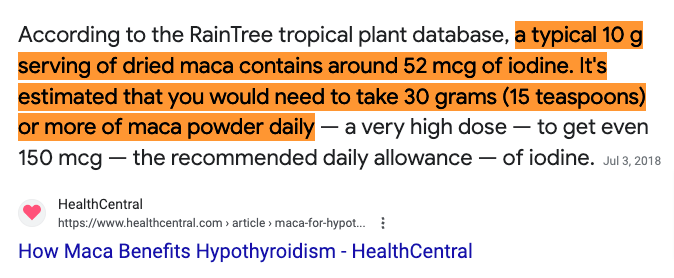
If you were paying attention then you know that the daily recommended intake for iodine is around 150 to 300mcg of iodine per day.
So even with a massive dose of maca, you are right in the middle of this recommended dose range.
The standard dose of maca is around 1-3 teaspoons.
Using this standard dose and the estimated iodine intake listed above, each serving of maca root powder would give you about 20-25 mcg of iodine.
Certainly not enough to have a huge impact on your thyroid and probably the exact amount you need to outcompete any lingering goitrogens found in the maca itself.
Bottom line:
Each serving of maca root contains a small amount of iodine but not enough to cause issues.
Will Maca Impact Your Libido?
It may!
There are many reasons to take maca and one of those is its impact on libido or sexual desire.
Female sexual desire is not something that gets talked about nearly enough (11) but it is something that many women with thyroid disease experience.
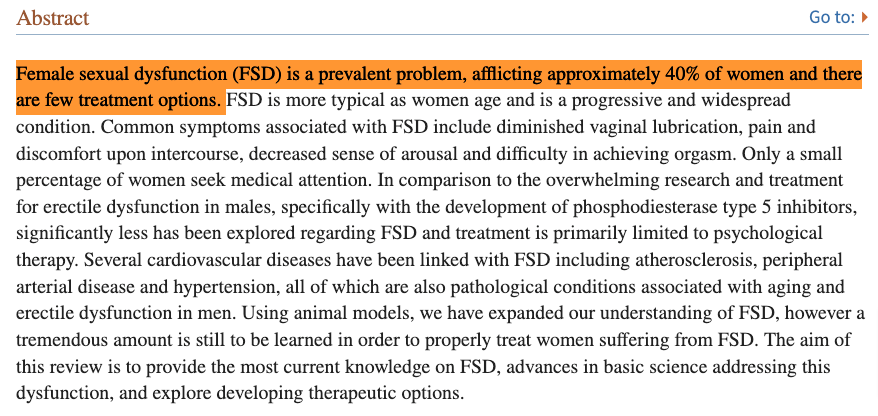
The benefits of sexual intimacy are incredible but it’s hard to experience these benefits when your sex drive is near zero.
Women with thyroid disease are more prone to developing decreased libido for a variety of reasons including depression, fatigue, changes to sex hormones, stress from their disease, and so on.
But if you can, enhancing your libido for more sexual encounters is a great way to improve the overall health of your body and thyroid.
More sex means better blood pressure, heart health, mood, energy, pain control, hormone balance, sleep, and so on (12).
The benefits read a lot like some cheap marketing pamphlets but they are well documented.
Taking maca root is one way to naturally enhance your sexual desire (13) which allows for more sexual encounters with your spouse.
These benefits likely stem from the impact maca has on your sex hormones but it’s not known exactly why it occurs.
Either way, consider it a positive side effect that may occur!
Note, though, that it doesn’t occur for everyone.
Both men and women take maca root powder to enhance their sex drive but not everyone will see improvement, unfortunately.
Ashwagandha vs Maca for Thyroid Patients
Ashwagandha and maca root are different but they do share some similarities which is why they are sometimes compared to one another.
Ashwagandha is also a botanical and an adaptogen which means it too has an impact on cortisol levels, vitality, stress resilience, and fatigue.
Just like maca, ashwagandha has been used for centuries to treat a variety of ailments and medical conditions.
And just like maca, there is some controversy about the safety of ashwagandha in thyroid patients!
And, again, just like maca, most of those concerns are overblown.
Ashwagandha is generally very well tolerated and has the backing of many research studies (14) showing how efficacious it can be, even for thyroid patients.
When it comes to adaptogens, you will find that some botanicals are better at treating certain symptoms and conditions compared to others even though there is a lot of overlap between them.
In the case of maca vs ashwagandha, I would think about choosing maca if you notice that you have more issues with things like low sex drive, hormone imbalances, menstrual problems, difficulty building muscle mass, PCOS-like symptoms, fertility issues, and issues with vitality.
If on the other hand, you were more interested in balancing cortisol levels, improving your sleep, obtaining more energy, supporting the thyroid-pituitary connection, managing depression/anxiety, and managing stress, then ashwagandha may make more sense.
But don’t get too hung up on the differences between these amazing botanicals because they have a lot of overlap between them.
Even though maca may be better for libido doesn’t mean that ashwagandha won’t help.
Or just because ashwagandha tends to be better at improving energy doesn’t mean maca won’t do the same.
You can think about these adaptogens as complementary to one another which means that you can take one or the other or both at the same time.
Will Maca Increase Estrogen?
Some women are concerned that using maca may raise their estrogen levels.
This is a legitimate concern because we suspect that maca definitely has some impact on testosterone, estrogen, and progesterone levels.
And because many women with thyroid disease suffer from the symptoms of estrogen dominance, they are worried that maca may make those symptoms even worse.
But there are a couple of reasons why you don’t need to worry about that.
The first is that botanicals typically show very little impact on serum hormone levels.
This applies to thyroid support supplements, testosterone support supplements, estrogen support supplements, and so on.
Even though they can certainly impact symptoms, they typically do not have a huge impact on serum levels of whatever hormone level they are influencing.
In other words, you could take a maca supplement for low estrogen and experience relief in some of your low estrogen symptoms without seeing a rise in serum estradiol levels.
There haven’t been a ton of studies on humans which show that maca has a profound impact on serum estrogen levels (15).
The second reason not to worry is that botanicals and adaptogens tend to work via a variety of mechanisms that result in hormone balance.
Put another way, it doesn’t really matter if your estrogen is high or low because the supplement helps bring that value back to normal.
If it’s high then it helps bring it lower and if it’s low then it helps bring it higher and so on.
For these reasons, taking maca in the setting of high estrogen or estrogen dominance is not usually an issue.
You may not tolerate maca for other reasons but it’s most likely not because it will raise your estrogen or make your estrogen dominance worse.
How Much Maca Should you Take & What Type?
In order to avoid potential issues, you will want to look for maca as gelatinized maca root powder.
This gelatinization process is what helps remove the goitrogenic compounds and makes consuming maca very safe.
Avoid any form of raw maca or unprocessed maca unless you are planning to heat and prepare it on your own.
I typically recommend getting maca as organic maca root powder in its gelatinized form.
This allows you to safely add maca to a morning smoothie or a thyroid-friendly protein powder (a quick and easy way to get it into your system!).
But maca does have a sort of nutty taste to it which can change the flavor of whatever you put it into.
If that is a problem for you then you may look to supplements or capsules to get your daily dose of maca.
It gets a little bit tricky when you go this route because sometimes supplement manufacturers will use the raw source instead of the gelatinized source to reduce the cost.
If you want to use maca in a supplement form just make sure that you double-check with the manufacturer to ensure it’s not in the raw form!
How much should you take?
The average dose is around 1 teaspoon or around 3 grams of maca powder but this varies from person to person.
I packed in 1,000 mg of maca into my thyroid-friendly protein powder Thyro Fuel (which is brand new at the time of this writing) which provides you with a 10:1 maca extract along with a blend of other natural adaptogens, mushrooms, and whole foods.
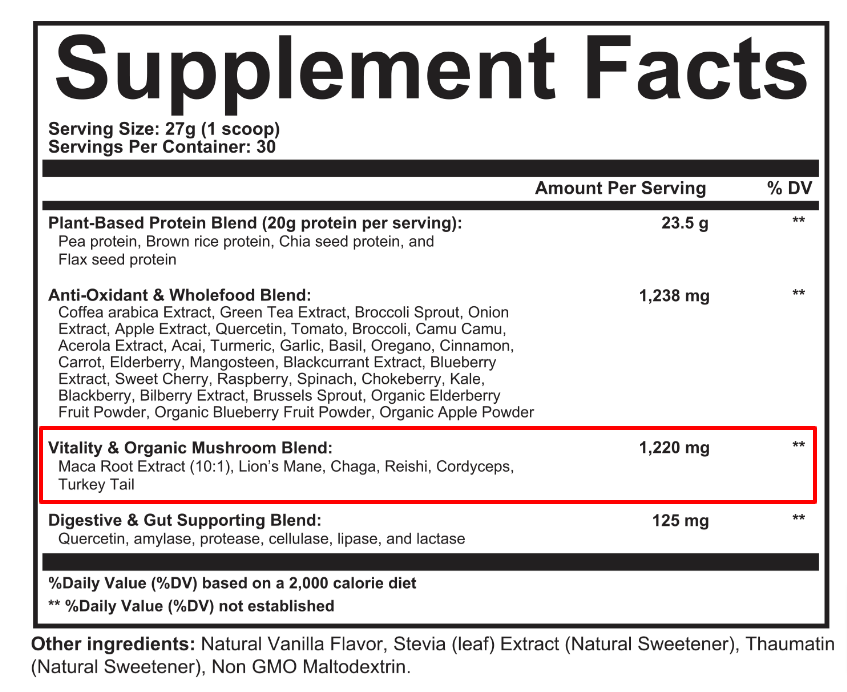
If you are looking to get maca into your diet each and every day then I would recommend checking it out.
You can also opt to use the powder by itself if that is your preference, just make sure you are getting the correct form!
In addition, I’ve found that it’s safe to consume much more than 1 teaspoon per day and I’ve personally used as much as 1 tablespoon a day (it is a plant, after all!).
Just make sure you start at lower dose to see how your body responds and increase as needed.
If you are using my protein powder then the 1,000 mg starting dose is more than enough to see benefits as it’s also combined with other whole foods and adaptogens.
If you wanted to get more, you could always just use more than 1 scoop of protein powder each day which is perfectly fine as well (and ideal if you are trying to lose weight).
How Long Does it Take Maca to Work?
It really depends!
Sometimes men and women who take maca notice results almost instantly and within a few days, whereas it may take several weeks for others.
Because maca is an adaptogen, you should plan to give it around 6 weeks to take effect.
Supplements that fall into the grouping of adaptogens can take a while to really kick in because they are attempting to influence hormone function.
And in order to see improvement from changes in hormone function, you need to give your body enough time for those changes to take place.
For adrenal and thyroid supplements, that amount of time is usually around 6 weeks.
But you may see some improvement in other areas much sooner.
For instance, some people who use maca see an almost immediate improvement in symptoms such as decreased sex drive.
The other benefits such as more energy, better sleep, more stress resilience, and improved fertility, will probably take weeks to months.
Final Thoughts
Maca root powder is a great supplement that can help manage many of the symptoms that thyroid patients deal with on a daily basis.
As long as you find maca in its correct form you don’t need to worry about it interfering with your thyroid function.
Taking maca daily can help with a variety of issues and many people use it for its benefits on sex hormones, sexual health, fertility, energy, and vitality.
Now I want to hear from you:
Are you currently taking maca root powder?
Are you taking it in supplement form or in powder form?
Are you planning on trying it after reading this article?
Do you personally suffer from vitality issues or libido issues that you think are related to your thyroid?
Leave your questions or comments below!
Scientific References
#1. https://www.ncbi.nlm.nih.gov/pmc/articles/PMC6494062/
#2. https://pubmed.ncbi.nlm.nih.gov/33729250/
#3. https://pubmed.ncbi.nlm.nih.gov/20616517/
#4. https://pubmed.ncbi.nlm.nih.gov/24931003/
#5. https://www.ncbi.nlm.nih.gov/pmc/articles/PMC3614644/
#6. https://www.ncbi.nlm.nih.gov/books/NBK285560/
#7. https://www.ncbi.nlm.nih.gov/books/NBK285556/table/tyd-iodine-deficienc.goitrogenm/
#8. https://www.cancer.gov/about-cancer/causes-prevention/risk/diet/cruciferous-vegetables-fact-sheet
#9. https://www.ncbi.nlm.nih.gov/pmc/articles/PMC3614596/
#10. https://www.ncbi.nlm.nih.gov/pmc/articles/PMC3184420/
#11. https://www.ncbi.nlm.nih.gov/pmc/articles/PMC3008577/
#12. https://www.ncbi.nlm.nih.gov/pmc/articles/PMC5052677/
#13. https://www.ncbi.nlm.nih.gov/pmc/articles/PMC6494062/
#14. https://pubmed.ncbi.nlm.nih.gov/28829155/
#15. https://pubmed.ncbi.nlm.nih.gov/18784609/
